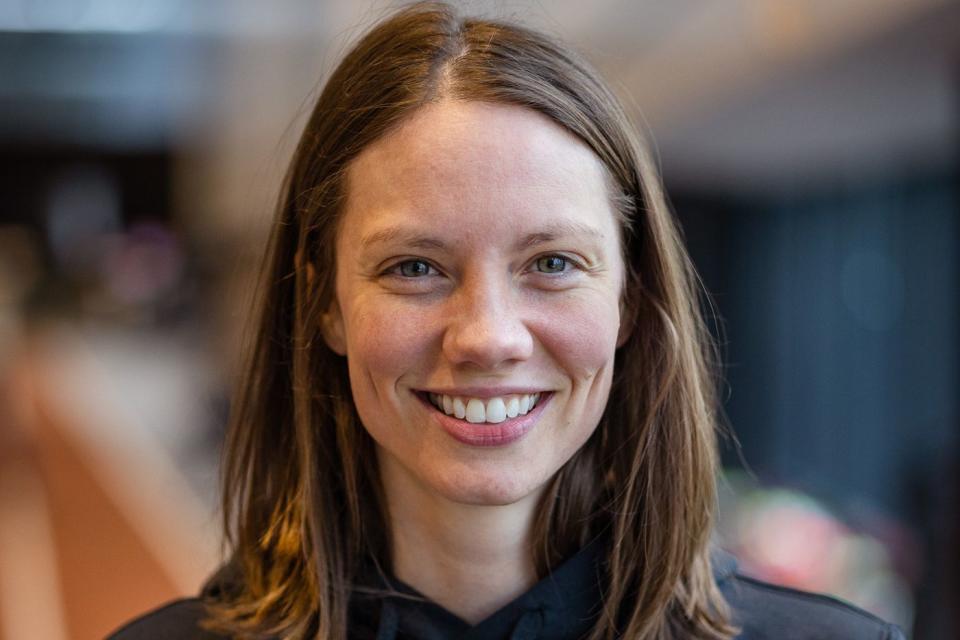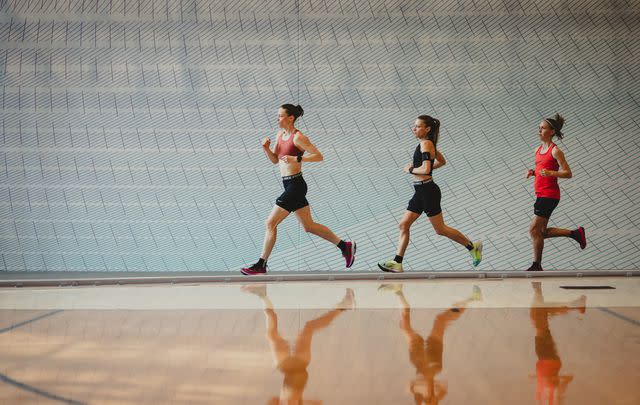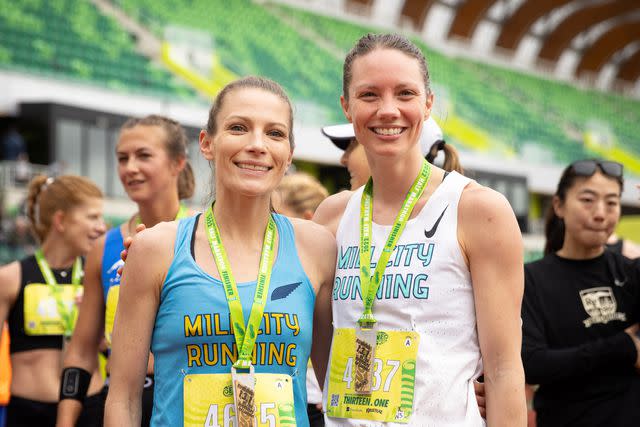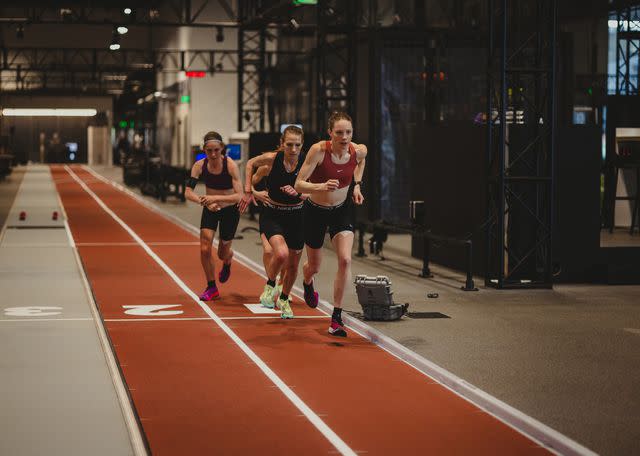Meet the Former College Gymnast-Turned-Marathoner Gunning for a Spot at the 2024 Paris Olympics
Gabi Rooker was seeking a new challenge after her college gymnastics days ended, and at age 36, she’s found it as one of the top U.S. marathoners

Courtesy of Nike
Gabi RookerFor years, Gabi Rooker spent her days on the mat, beam and bars, tumbling and flipping as a high-level gymnast. She started in the sport at age 3; by age 6, she had dreams of making it to the Olympics.
Now, at age 36, she has that same dream — but this time as a marathoner.
Rooker, from Minneapolis, Minnesota, is one of the more than 150 women who will toe the line in Orlando, Florida, Saturday at the U.S. Olympic marathon trials, hoping to place in the top three and earn a ticket to the 2024 Paris Olympics. Her path there, though, is different from most of the field, who were more likely to have grown up running track and cross country in high school and college while Rooker was in the gym.
“Gymnastics really takes up most of your life and for a lot of gymnasts that's exactly what you want, but it does mean you miss out on some of the more high school focused extracurriculars,” she tells PEOPLE.
Rooker wasn’t at the elite level of a Simone Biles-type gymnast, but she was good, and was looking to compete in Division I programs in college. She ended up opting for the well-regarded Division III program at the University of Wisconsin-La Crosse, where she went on to be a six-time national champion in vault, floor and team events.
After she finished college and thus her gymnastics career, Rooker says it “was hard at first” to move on from a sport that had consumed her life since age 3. And her first attempt at running for fun, with her husband Alex, couldn’t have gone worse.
Related: How Keira D'Amato Went from 'Hobby Jogger' Life to Breaking the American Marathon Record
“I had thought we had gone like, four miles and we hadn’t done one,” she recalls. “It was 85 degrees and I hadn’t done much physical activity for two months, let alone running, and we got to some hill and I kind of ran-walked up it and started crying and I was like, this sucks. I hate this. I'm never doing this again.”
But after “licking my wounds” for a few days, Rooker tried running again. She started signing up for local races, and found they were “fun, and lots of people show up and they're excited and they're all working towards their goals.”

Courtesy of Nike
Gabi RookerStill, for years Rooker was just another runner on the road. Then in 2019, at the Twin Cities 10 Mile race, she broke through with a time of 62 minutes and 6 seconds, finishing as the ninth woman overall. A friend who ran Twin Cities Marathon that weekend had run an OTQ, an Olympic Trials qualifying time, and Rooker was inspired to do the same.
"To hear she's running a 5:58-5:59 mile split — that's just so wildly fast and that's so cool. I was kind of just starting to think I could be chasing something,” she says.
Rooker made her marathon debut in 2021, running a 2:54 — an impressive debut that was just nine minutes off the Olympic Trials qualifying time. But then it was announced that the qualifying time for 2024 would drop from the in-reach 2:45, to 2:37. “I was really frustrated,” she says.
Related: Shalane Flanagan Overcame an Injury Before Winning the NYC Marathon: 'I Was in a Dark Place'

Courtesy of Nike
Gabi RookerShe didn't back down from the challenge, though. With the help of her husband, who was now coaching her, and her training partners at her run club, Mill City Running, Rooker “got to work.”
One of the main keys to her success, though, was joining Nike’s Project Dreamweaver. The company recruited and supported 120 women hoping to qualify for the trials, providing them with regular shipments of gear — including their coveted Alphafly 3 shoe — brought them out to Nike headquarters for training and analysis and gave them access to three of the top American marathoners in history: Joan Benoit Samuelson, Shalane Flanagan and Keira D’Amato.
Rooker, a physician assistant, says the shoes were an immediate “tangible and financial” benefit of Dreamweaver. But “what I think most of us are going to remember looking back on the program is that you have this hugely supportive group of 120 athletes who are across the country,” she says. “You have people who are having babies, people working full-time jobs, people going through mental health struggles, injuries, all texting and staying in touch with each other.”
Related: First-Time Olympic Marathoner Molly Seidel Is Optimistic About Tokyo Games, 'Embracing the Chaos'

Courtesy of Nike
Gabi RookerAnd Rooker — who is now officially sponsored by Nike — went on to nail her qualifying time in 2022, running a 2:34:59 marathon. She lowered it again a year later, to 2:27:38, making her one of the fastest American marathoners in the field right now.
But Rooker didn’t stop there — at the Chicago Marathon this past October, she finished in 2:24:35, making her the fourth-best American that day and officially putting her in the conversation for making the Paris Olympics team.
While finishing in the top three and making the team is absolutely Rooker’s goal, she plans not to think too much about Paris during the race.
“I’m more just trying to focus on how's mile three going to feel, how's mile seven going to feel?” she says. “I certainly have goals and aspirations, but right now, the big thing is just kind of getting through each of those miles and trying to enjoy the moments.”
For more People news, make sure to sign up for our newsletter!
Read the original article on People.


